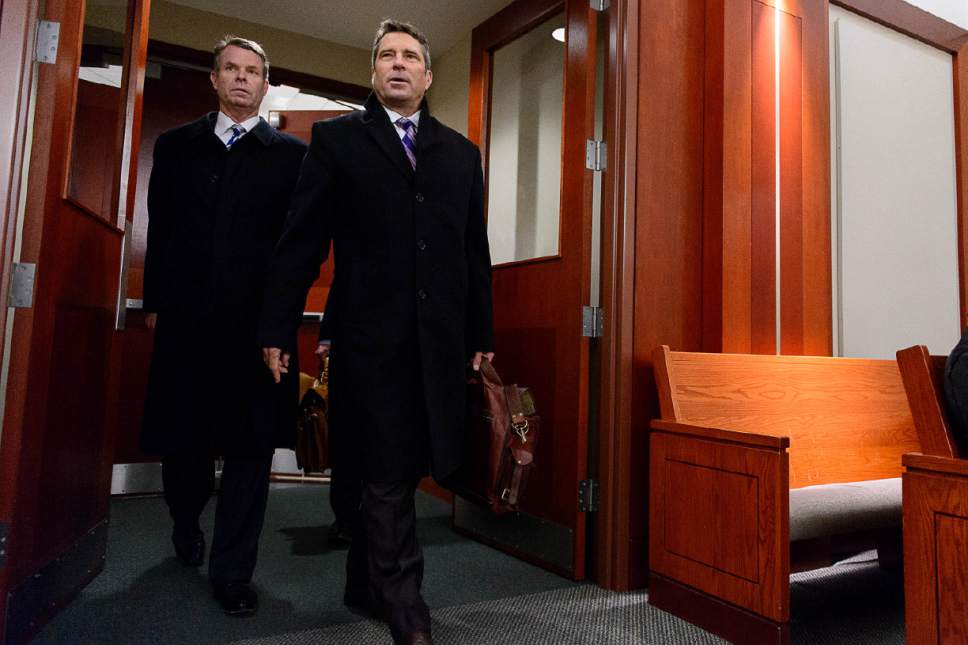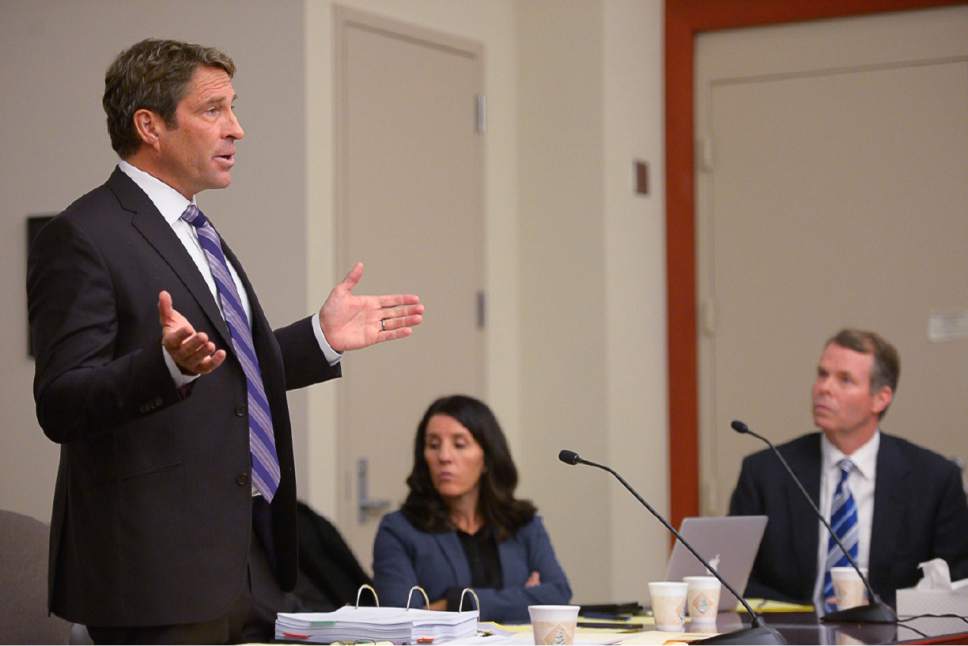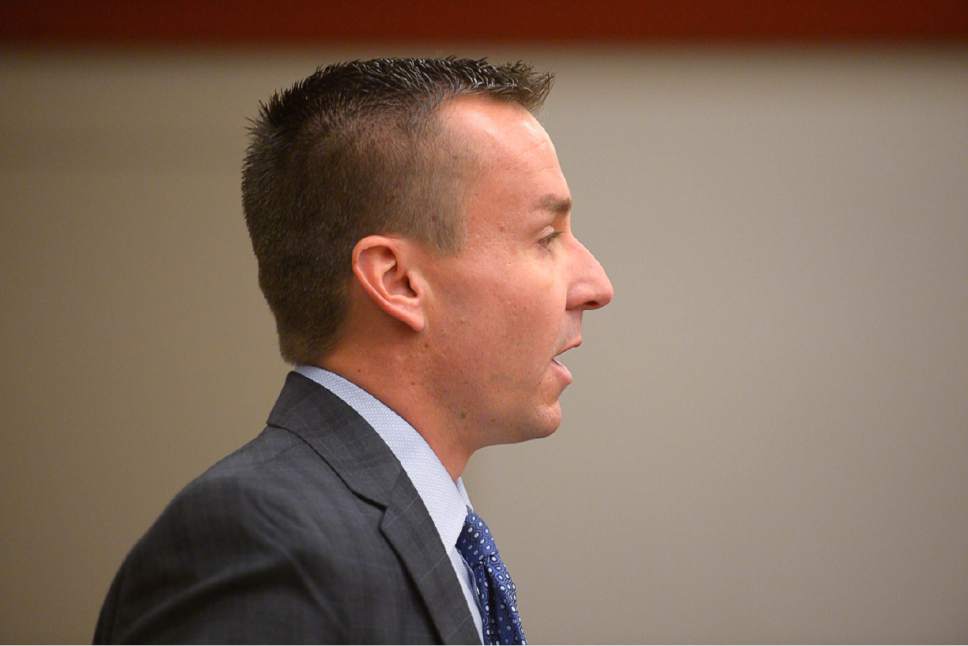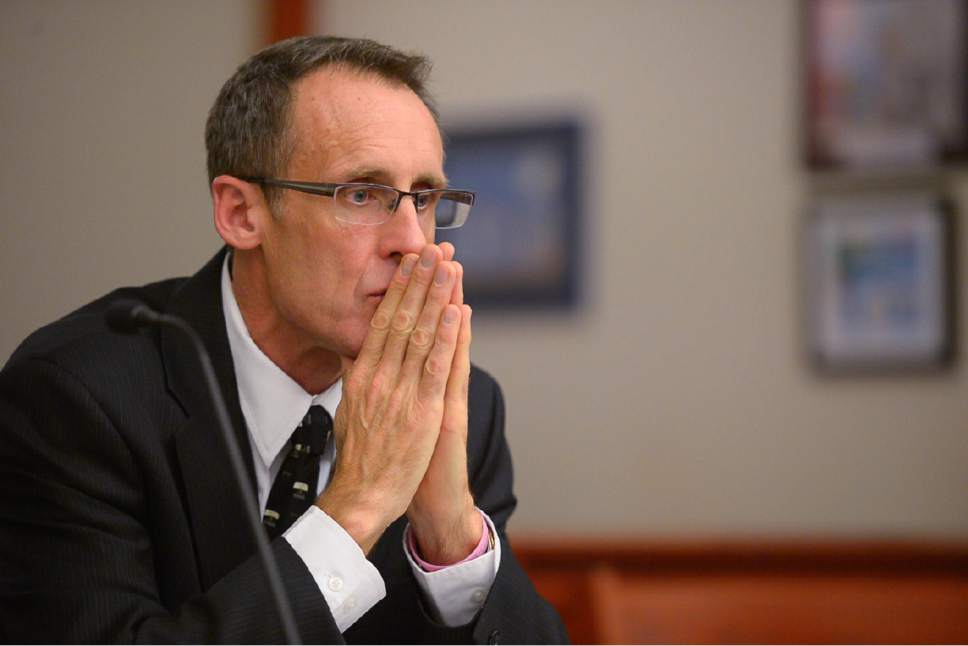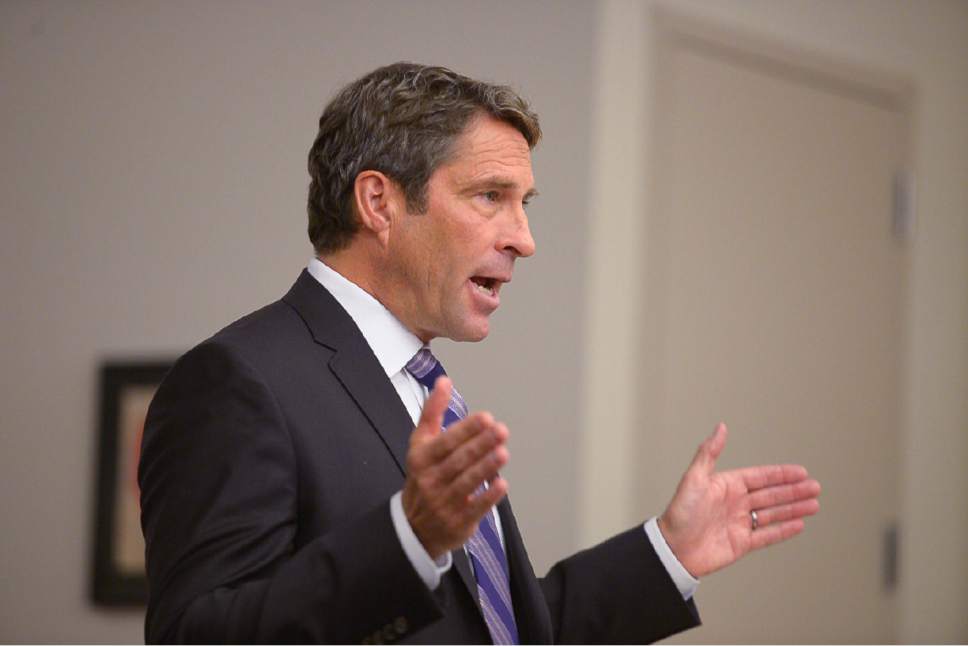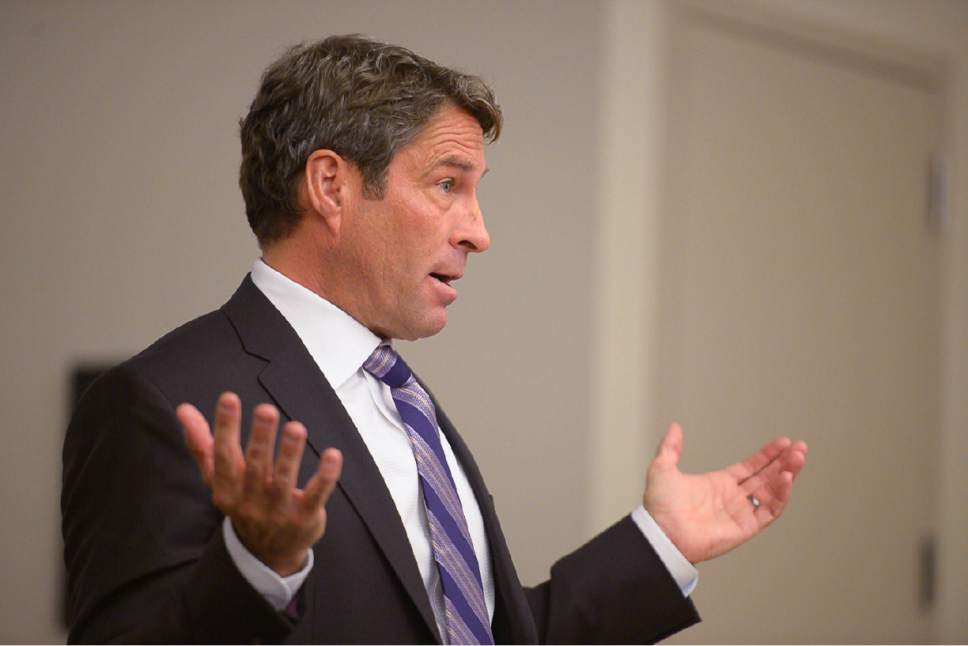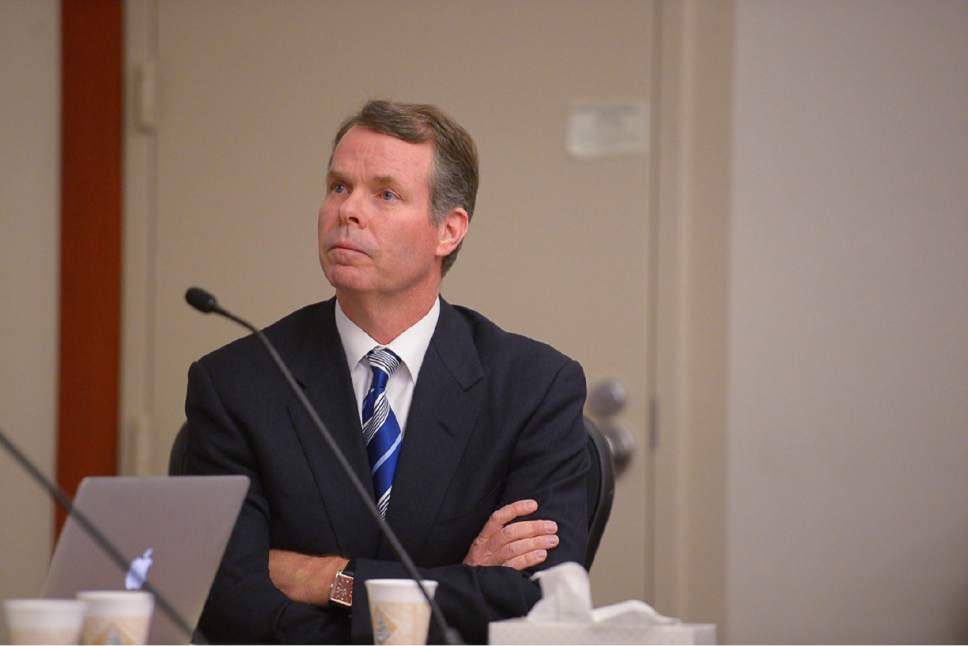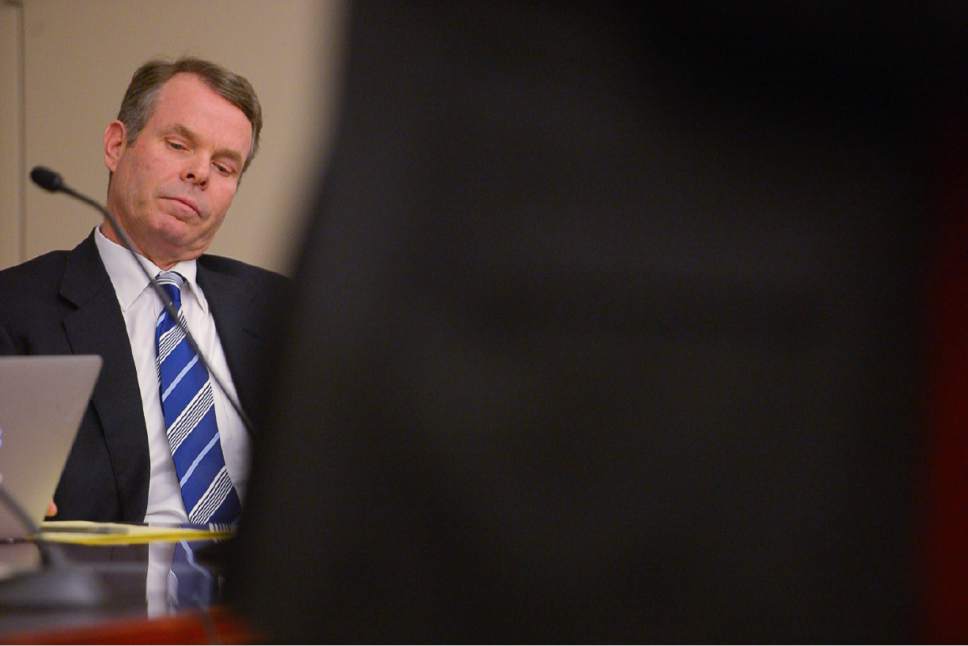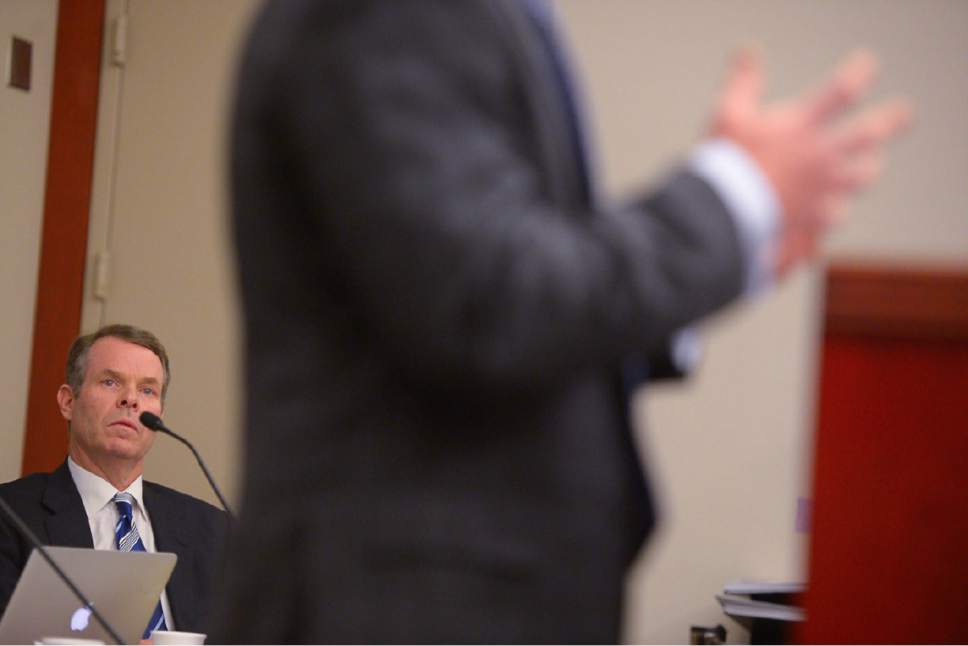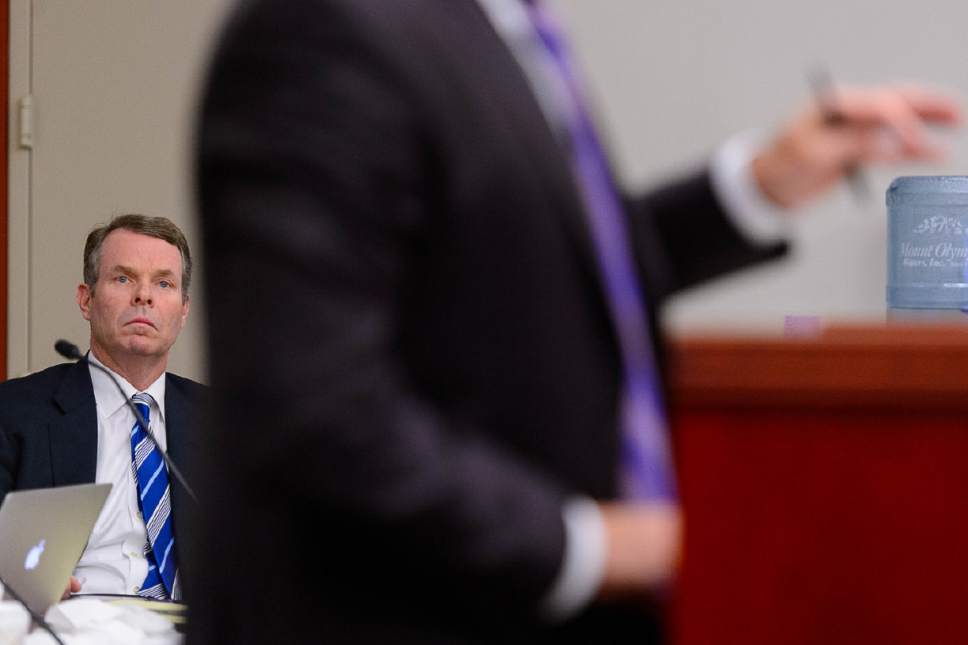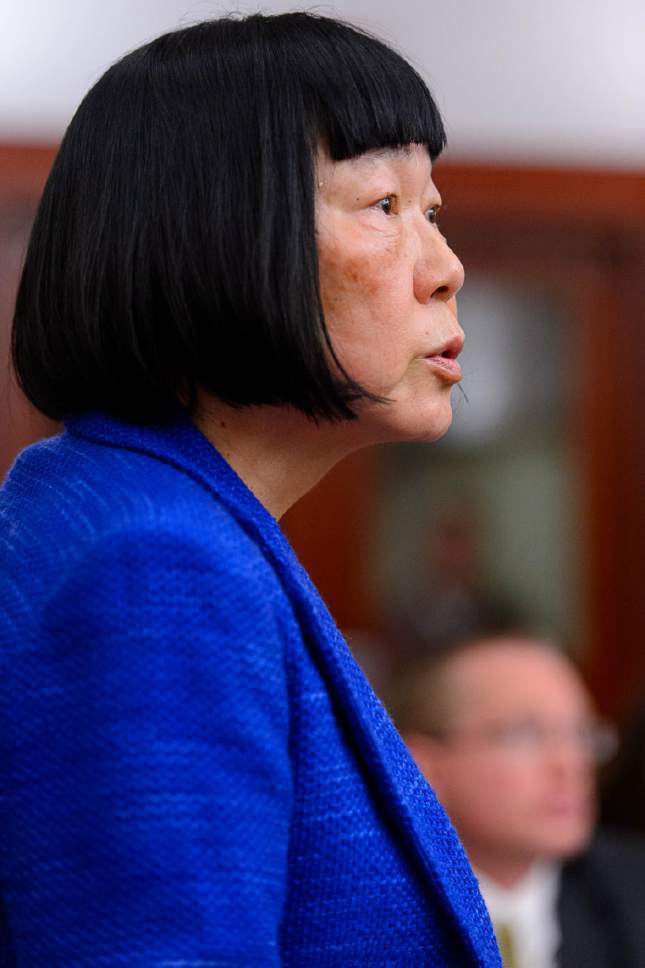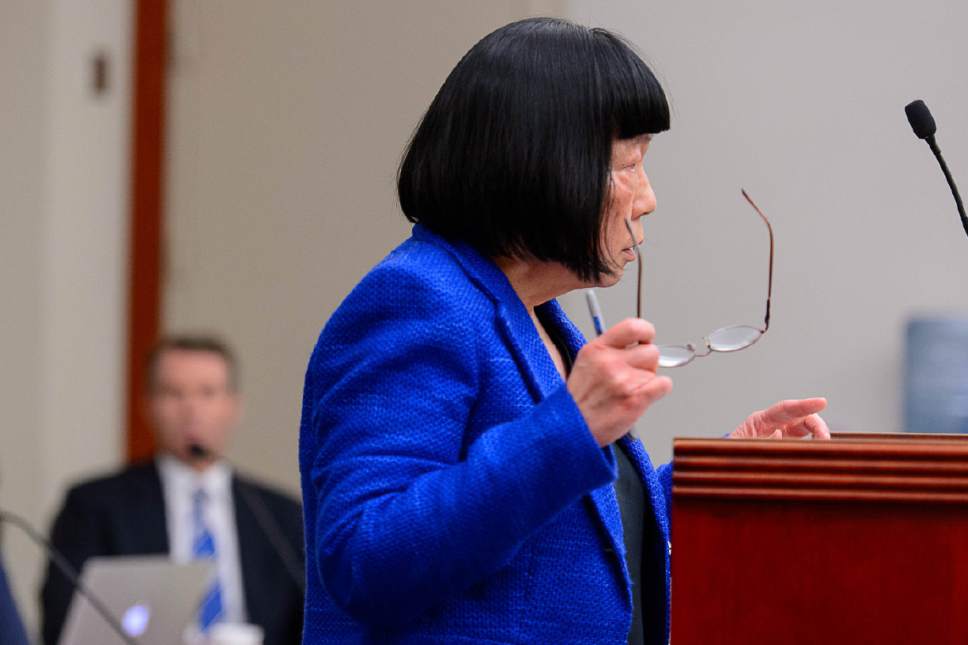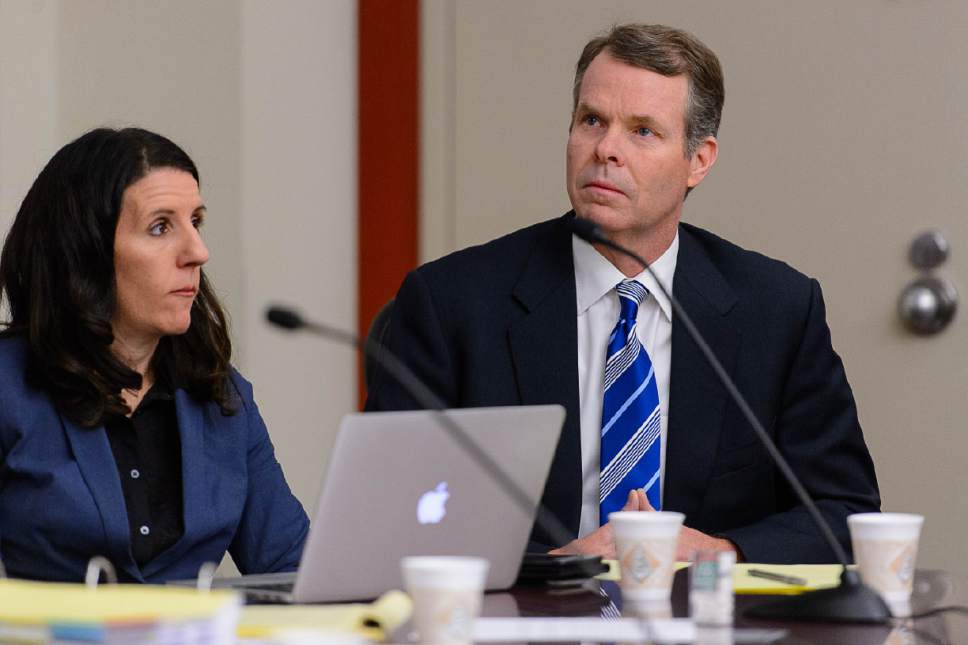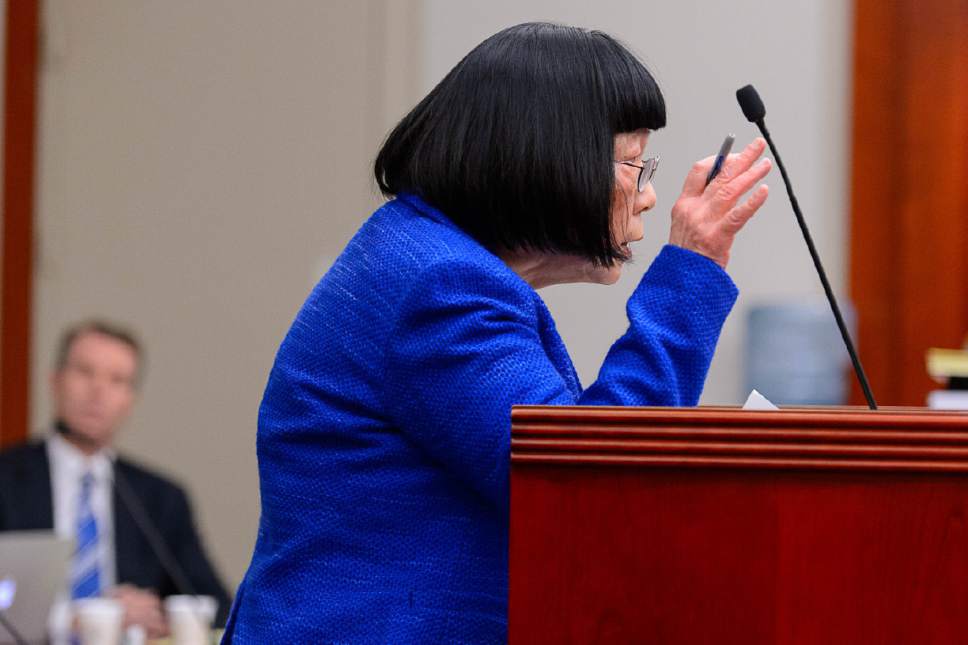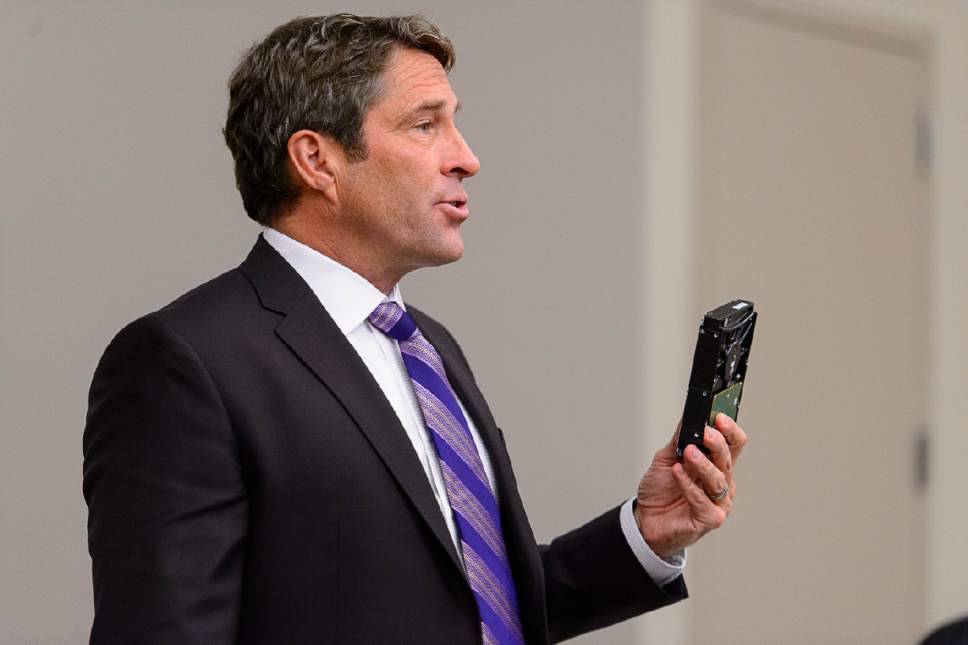This is an archived article that was published on sltrib.com in 2016, and information in the article may be outdated. It is provided only for personal research purposes and may not be reprinted.
The same issues that led in part to the dismissal of the criminal charges against former Utah Attorney General Mark Shurtleff now are casting a cloud over the case against his successor, John Swallow.
At a hearing Friday, Swallow's lawyer Scott C. Williams complained that federal attorneys have so far stymied his effort to subpoena testimony from a state agent who helped investigate Swallow and Shurtleff as part of team that included FBI agents.
With Swallow's trial scheduled to start in about two months, Williams complained to 3rd District Judge Elizabeth Hruby-Mills that federal attorneys are requiring him to essentially divulge his case before they allow Utah Department of Public Safety investigator Scott Nesbitt to testify.
"Frankly, what I make of this is obstruction of this trial process by the federal government," Williams told reporters after the hearing.
Federal lawyers and the FBI began investigating Swallow and Shurtleff for possible public corruption charges in 2012. But in September 2013 the U.S. Department of Justice bowed out without filing charges.
The cases were picked up by Salt Lake County District Attorney Sim Gill and Davis County Attorney Troy Rawlings, who were joined by FBI agents. Nesbitt also was a member of the prosecution team and was cross-deputized as a special deputy U.S. marshal.
In July, however, Hruby-Mills dismissed the case against Shurtleff on a motion from Rawlings, who among various reasons cited the federal government's failure to cooperate in turning over evidence sought by Shurtleff's attorneys.
Swallow, who stepped down as attorney general in December 2013, has pleaded not guilty to 14 felony and misdemeanor charges, including counts of money laundering, misuse of public funds and falsifying government records. He is scheduled for a four-week trial beginning Feb. 7, but Williams has filed several motions to dismiss the case.
After hearing arguments Friday, Hruby-Mills said she would issue a written ruling later.
Williams complained that federal attorneys shouldn't be able to decide whether Swallow can call Nesbitt and FBI agents who investigated his case to testify in court. He demanded the agencies turn over any information from a September 2013 meeting or communications at that time between FBI agents and DOJ's Public Integrity Section attorneys that resulted in the federal prosecutors stepping away from the case without filing charges.
"How can a defendant not be entitled to know what the agents know?" Williams asked.
Assistant U.S. Attorney Timothy Jafek said the process for getting approval for the agencies is simple and aims to, among other things, protect privacy, grand jury secrecy and classified information. Salt Lake County prosecutor Chou Chou Collins also replied that there was no evidence about a meeting where federal attorneys and agents made the decision to halt their investigation.
"I don't know where that 45-minute meeting came from," Collins said. "Perhaps the defense has more information than we have."
Williams also took issue with remarks made in an interview with Nesbitt by Mark Thomas, the chief deputy lieutenant governor and Utah's director of elections. In a report prepared by Nesbitt that was filed in the court record, Thomas is reported to have called Swallow "kind of like the con artists who think they're fooling everyone."
Williams said that shows that an investigation by the lieutenant governor's office and a parallel one by the Utah Legislature were "biased, motivated investigations that were not seeking the truth."
Hruby-Mills is to decide on Williams' motions to dismiss charges that include arguments on:
• A missing recording of a meeting involving an interview by Rawlings, Nesbitt and now-imprisoned St. George businessman Jeremy Johnson, who is a witness in the Swallow case.
• A recent U.S. Supreme Court decision that said officials could be convicted of public corruption only if they took some official action based after receiving an incentive.
• Whether Swallow's right to private communications with his attorneys was violated by the presence of emails found in evidence gathered by agents and prosecutors.
• Whether Swallow's rights were violated when he gave an interview to investigators for the lieutenant governor's office only because he was under a threat of losing his A.G. post if he failed to cooperate.


